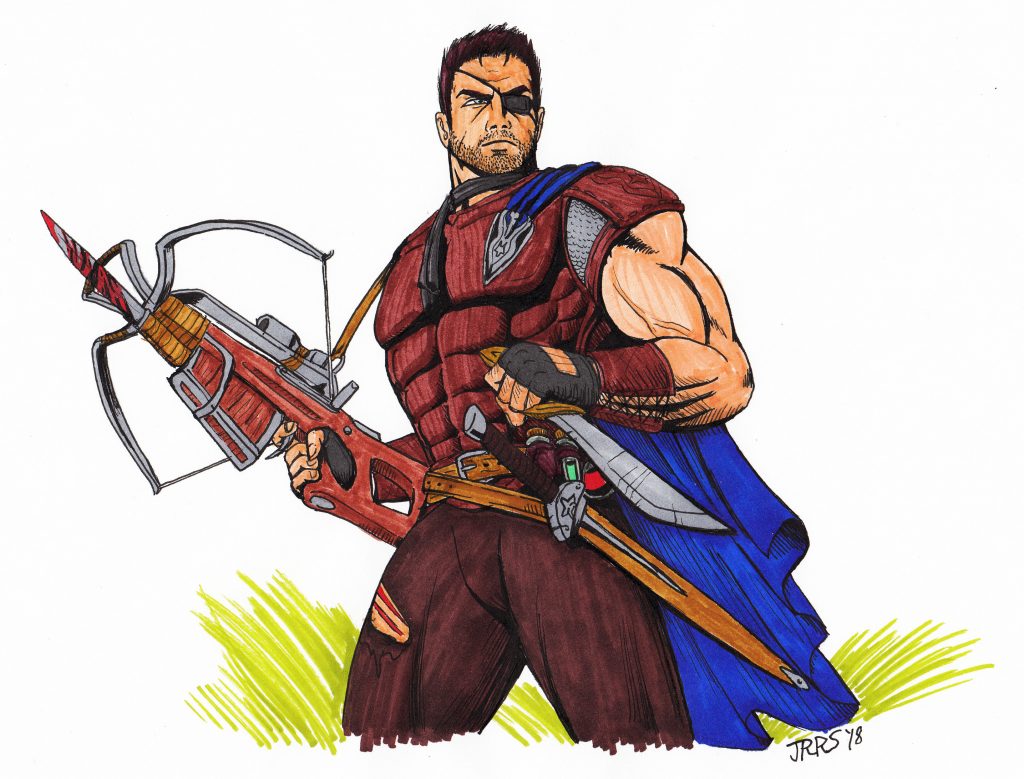Werewolf/Monster Hunters
So I’ve been asked this a lot: what about werewolf hunters? What were they like in folklore?

Well, I got a big bomb to drop on you for that question…
There weren’t really any “werewolf hunters” in folklore.
Yep, the act of “werewolf hunting” in and of itself and especially as an entire profession comes absolutely 100% from popular culture. So why is that?
Well, mostly because in folklore werewolves weren’t considered huntable. They weren’t basically pests like they are in so many settings today.
They were rare individuals, people with stories, and were almost never that “monster marauding the countryside” you get from modern things.
And they definitely, absolutely were never, not even once, some kind of massive infectious plague of rats that ravaged an entire kingdom.
The idea of putting together hunters with werewolves didn’t really mix in folklore, especially considering, when werewolves became seen as less mystical and purposeful and instead were just evil in the Early Modern period (as well as when they came to be seen as madmen and people with diseases), they were generally considered just insane people who needed help, and they were put into monasteries to get the mental help they needed, not killed like animals. They were put there to give them protection from people who’d want to kill them for being crazy, and to teach them how to be civilized. It actually worked pretty well in some cases, since the monks treated them like people instead of shunning them. You can read detailed, even day-by-day, accounts of some clinical lycanthropy patients, written by the monks themselves.
Anyway, it just wasn’t really a thing. Folklore isn’t a monster movie. It was a lot more than that, which I’d love to see werewolves become again in pop culture.
(Side-note: I am not saying I hate all werewolf hunters in everything everywhere, and I in fact write about monster hunters [not specialized just for werewolves] a lot. Like, a lot a lot. A protagonist in my novel series is one, in fact.)
Now you may ask, but Mav! What about the Beast of Gevaudan!?
Yes, some people took to hunting the Beast of Gevaudan. However, I do not count the Beast of Gevaudan as a proper werewolf legend. It has 0 of the hallmarks required, and the creature involved was only speculated to be anything even remotely like a wolf – it was not described or depicted as such in most any of the contemporary sources we have related to it.
And besides which, the people who hunted the Beast of Gevaudan were essentially big game hunters, random people looking for money, soldiers, and just – people. They weren’t specializing in any way. This wasn’t a profession for them. It wasn’t like calling in the werewolf hunter guys armed with silver, like in the Red Riding Hood (2011) movie or anything (loved that, though, by the way), like some of the false “sources” would have you believe.
So there weren’t really “werewolf hunters” in folklore. What about other kinds of monster hunters? Did we have those?
Yes, those were a thing! Vampire hunting was actually considered a workable profession in Greece, believe it or not.
Perhaps more than this, though, the idea of undead hunting was an actual thing that had official laws in some countries.
In fact, during the Anglo-Saxon period in England, a law existed to allow people to drive wooden stakes through anyone suspected of being undead. As Matthew Beresford points out in his incredible book (which you should pick up, if you like vampire folklore!), From Demons to Dracula, it is important to note that this law specifies undead, not vampiric – the concepts of what we consider a vampire today and what was a “vampire” back then, especially with that specific word, were very different. And that law? It was only repealed in 1823.
There’s so much more to say about monster hunters and undead hunters, but more on that later! I am, after all, planning a series of vampire facts very soon.
So, ultimately, werewolf hunters weren’t a thing folklorically, that’s the bottom line. Not as professionals, especially. But most importantly, werewolves weren’t really seen as a common monster to hunt and stamp out. There was a lot more to them than that, and they were often knights/shamans/great warriors/wanderers/guardians, etc., or some combination thereof, not a random encounter killing people here and there.
Werewolf hunters are just another symptom of how heavily concepts of werewolves as a whole have changed going into modern day, pretty much always for the worse and the negative. And boy, they sure have changed a lot.